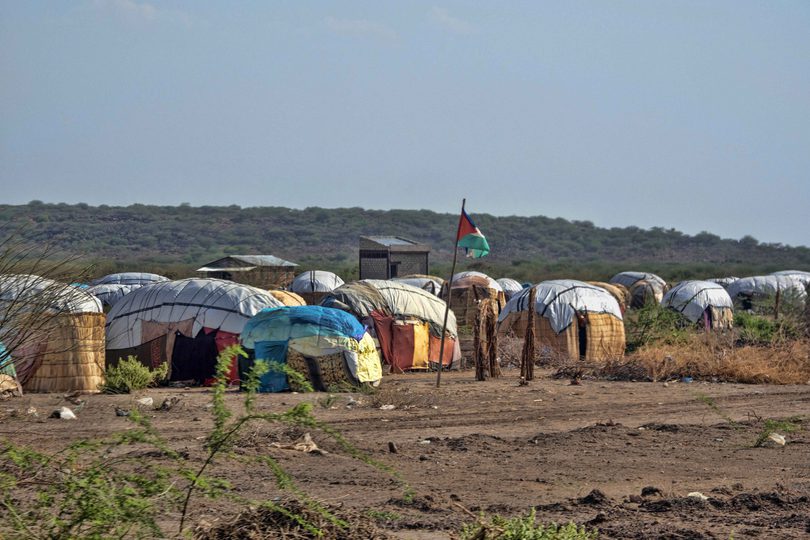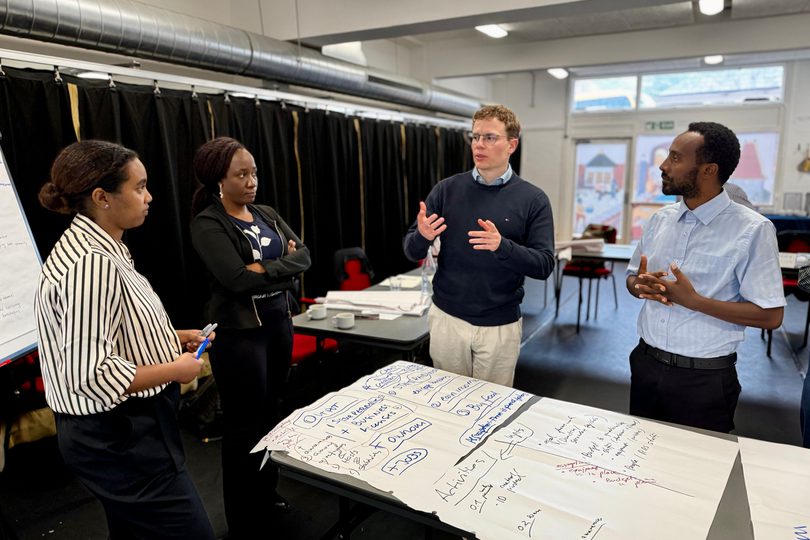
Ethiopia, one of the world's largest refugee-hosting countries, has about 930,000 refugees from South Sudan, Somalia, and Eritrea as of July 2023 (UNHCR, 2023). So, how can we ensure they can make an important contribution economically and socially?
Traditionally, Ethiopia has implemented an encampment policy, where refugees dependent on humanitarian aid reside in one of 27 camps managed by the Administration for Refugee and Returnees Affairs (ARRA) and United Nations High Commission for Refugees (UNHCR). The 2017 adoption of the Comprehensive Refugee Response Framework (CRRF), created at the 2016 UN Summit, marked a shift in refugee management, aiming to increase eligibility for the Out-of-Camp Policy, issue work permits, and enhance educational enrolment. However, political hesitation remains due to the controversial belief that refugees "steal jobs from the local population."
Allowing refugees to work provides a sustainable long-term strategy for refugee management. Yet, 62% of refugees face significant restrictions on their right to work (UNHCR, 2021). These policies limiting refugees’ access to employment harm both the refugees and the host communities; the latter miss out on potential contributions of the former’s labour. These restrictive policies stem from efforts to protect host communities from perceived adverse effects of an expanded labour supply. A major barrier to expanding refugees' right to work is the lack of evidence supporting the benefits of such policies.
To address this barrier, the Oxford Martin School Programme on the Future of Development partnered with the Ethiopian government’s Refugee Returnee Services (RRS) and World Bank to design a project to provide evidence on the effects of allowing refugees to work. Using a Randomized Controlled Trial (RCT), the project aims to generate the first causal evidence of how work permits impact refugees and host communities. Upon successful implementation of the project, we hope and expect to see long term impacts that reflect significant improvements in the quality of life for refugees and their local communities such as increased self-reliance, economic growth, social cohesion, and reduced dependency on aid.
For the work permit scheme to be successful, refugees must be aware of what obtaining a work permit does for them and the stakeholders must be committed to their roles
Given that 76% of the world's 29.4 million refugees are hosted by low- and middle-income countries, conducting this research in Ethiopia ensures results are valid for many refugee situations. Ethiopia, hosting roughly 930,000 refugees, serves as an ideal research setting. Unlike in other host countries, refugees in Ethiopia predominantly reside in camps, providing a unique opportunity to experimentally measure the effects of resettling refugees in the host community with work permits.
The project has entered a critical stage of implementation, including a comprehensive assessment of refugee livelihoods followed by distribution of work permits and business licenses. Close partnership with RRS is therefore crucial to deliver on the project’s goals. We therefore agreed on a substantial programme of analytical support and capacity building to ensure all partners have the required training in impact evaluation and data-driven decision making. This capacity building programme includes:
- Strengthening of capacity to collect, capture, analyse and use data in local RRS field offices to enhance the protection of refugees.
- Tailoring of policy decisions to ensure the wellbeing of refugees is prioritised whilst also establishing opportunities for rigorous impact evaluation through randomisation.
As a first step in this capacity-building program, we held a workshop for the RRS with a curriculum that included opportunities to share lessons on implementation challenges in the refugee context with other policymakers and academics, sessions on principles of economic evaluation and its use in guiding policymaking decisions, and opportunities for all program partners to agree on key aspects of the project’s next steps.

Delegates at the workshop, including Denat Negatu (far left) and Tamiwe Kayuni (second from left)
The four-day workshop held in June was hosted by the Oxford Martin School and featured speakers including academics from the Blavatnik School of Government and Refugee Studies Centre (University of Oxford), researchers from the London School of Economics and Oxford Martin School as well as experts from policy and practice, including the World Bank’s Country Economist for Ethiopia. The RRS officials were trained in the theory and implementation of RCT’s as well as their ability to generate evidence of the impacts of government programs. The RRS and research team also reviewed commitments made in a memorandum of understanding (MoU) that was signed in December between a team of researchers at University of Oxford, London School of Economics, Northeastern University, World Bank and the RRS.
Christian Meyer, Director of Future of Development, said of the workshop:
‘For the work permit scheme to be successful, refugees must be aware of what obtaining a work permit does for them and the stakeholders must be committed to their roles as stipulated in the MoU. All this requires continued collaboration and commitment from all stakeholders involved.’
Several next steps were discussed during the workshop, including an awareness campaign in refugee camps to inform refugees about the work permit initiative and its benefits. Selecting camp locations for the research project was another critical step discussed and the team identified locations to be included in the Direct Effect Study.
The representative from the World Bank in Ethiopia, Yehualashet Gebremedhn Astera, added: ‘Identifying these locations is essential for the effective implementation of the project and for generating reliable evidence on the impacts of work permits.’
Our partnership with Ethiopia’s RRS and the World Bank’s Poverty and Equity Global Practice, supported by various organizations such as the World Bank's PROSPECTS partnership, Ministry of Foreign Affairs of the Netherlands, J-PAL/IPA Displaced Livelihoods Initiative (supported by the IKEA Foundation), and International Growth Centre (funded by the UK Foreign and Commonwealth Development Office), is dedicated to producing vital evidence on the implications of granting work permits to refugees. This evidence will shape policies that facilitate sustainable refugee management, benefiting both refugees and host communities.
This opinion piece reflects the views of the author, and does not necessarily reflect the position of the Oxford Martin School or the University of Oxford. Any errors or omissions are those of the author.

